Right when India was starting to smell victory against the deadly COVID-19 disease, the virus has struck back with a new strain, which in a way has derailed the ambitious vaccination drive of the Indian government.
The virus has restarted spreading its wings across India The World Health Organisation (WHO) has already confirmed that the new strain of the coronavirus is even more contagious than the previous one and at the same time, people in India have started to take it less seriously.
To investigate and figure out ways to stop the second wave of COVID-19, the central government formed a panel, which in its report, said, ”The main reason behind the second wave is the superspreader events like weddings, elections and social gatherings and people being unwilling to keep following the social distancing norms.
Niti Ayog member (Health) Dr VK Paul has suggested not to show any laxity in our fight against COVID-19, as breaking the chain of transmission should be our utmost priority at the moment. He also emphasized that vaccines are a major tool in our mission but we can not afford to give up on the containment and surveillance methods that we have been following for so long.
In the last 24 hours ending at 8 AM Monday, India recorded the highest ever 1,03,558 new COVID-19 cases. These cases have taken India’s total to 1,25,89,067, out of which 9.07 lakh are currently active, while 1.17 crore has recovered successfully. In the last 24 hours, a total of 478 deaths have been reported, taking the toll up to 1.65 lakh.
Maharashtra is the worst affected state right now with over 3.36 lakh active cases. The state recorded 31,643 cases on Monday itself. To curb the resurgence of the virus, the state is likely to release new work norms by April 1. The decision on a full lockdown will be taken in a meeting headed by the Chief Minister of the state.
In a strange occurrence, eight states of the country accounted for 84.5 per cent of the total 68,020 fresh cases recorded on Monday. Delhi also recorded more than 1,900 cases on Monday, breaking its past three-month record.
India’s indigenous vaccines – Covaxin and Covishield – have been performing well, but looking at the huge population of our country, it is impossible to immunize everyone in a short period. Till now, India has managed to vaccinate only six crore people, which is just 4.43 per cent of the 135.5 crore population of the country.
More shockingly, only 0.5 per cent of people in India had received both doses of vaccines by March 18, 2021. If Indian authorities maintain the same pace of vaccination, they would be able to vaccinate 70% of the population in the next 10.8 years.
Hence, it becomes essential for the people of the country to maintain the social distancing norms specified by the authorities, so that the government doesn’t have to use their time, manpower and focus on stopping the spread of the virus, instead of speeding up the inoculation drive.
Any government cannot succeed against the deadly virus if the people of the country do not contribute their bit to the mission. Hence, getting vaccinated timely should be our top priority and until we are not inoculated, we must follow the social distancing norms.
To stop the resurgence of COVID-19 in India, people must ensure that they are following all the protocols set by their local authorities, and also step forward to get themselves immunized against the disease. We must stop the spread of misinformation and myths related to the disease and vaccines. Moreover, people should also ignore attending social gatherings to stay safe.
Know your current health status!
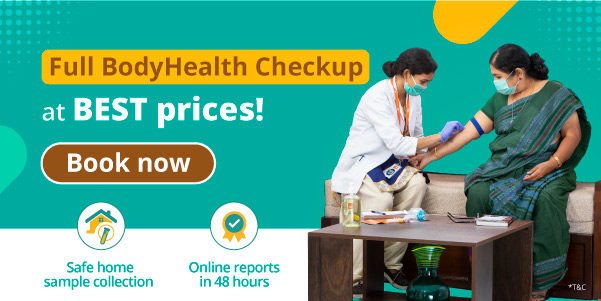
Disclaimer: The information included at this site is for educational purposes only and is not intended to be a substitute for medical treatment by a healthcare professional. Because of unique individual needs, the reader should consult their physician to determine the appropriateness of the information for the reader’s situation.
The Government’s COVID-19 vaccination initiative for all people over the age of 60 and everyone in the age-group 45-59 who have comorbidities is well underway. This is the second phase of vaccination and it has already been resoundingly successful. Lakhs of people are getting vaccinated. This fills us all with hope and optimism.
Vaccination is the only way that we can defeat the COVID-19 menace. That means once everyone gets vaccinated, not only will everyone be safe, but the economy too will be rejuvenated. Lives will return to normalcy.
That is why everyone who takes the COVID 19 vaccine is helping India reach safety. Every vaccinated person is a Superhero who is helping the country win the war against COVID-19. Every vaccination means a reduction in the possibility of the transmission of COVID-19.
PharmEasy salutes the effort of every state government in bringing the much-needed COVID-19 vaccine to this vulnerable segment of the population. We too want to do our part and help the government by urging more people to get vaccinated. The sooner everyone gets vaccinated, the safer the whole nation will be.
That is why PharmEasy has come up with a unique plan – Go Corona Go Initiative. This is our way of saying thank you to the superheroes who are getting vaccinated and getting India one step closer to eradicating COVID-19.
Under this initiative, PharmEasy would be giving a Flat ₹150 OFF Coupon on your next medicine order after you get vaccinated. All you have to do is upload your vaccination certificate to avail our token of gratitude!
We hope that this initiative will create many new superheroes! ‘Go Corona Go‘ is meant to encourage more people to register themselves for vaccination. It will benefit them and the whole country.
This campaign will last a month. In the process, we hope that we will be able to thank India’s superheroes in our humble way and inspire more people to join the ranks of the superheroes!
Isn’t it wrong to let down the sacrifices done by our COVID warriors? So, better be vigilant about your health!
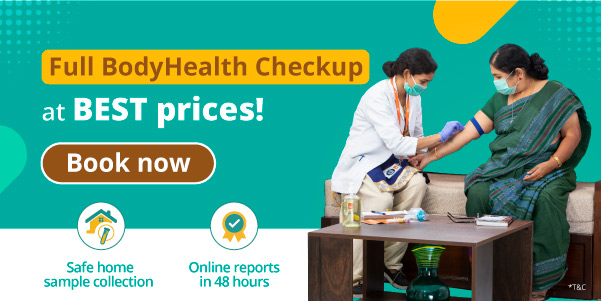
Amid the advancement of COVID-19 vaccination drives across the globe, the confusion and rumours around the efficacy of the vaccines are still rising. People are trying to find answers to their questions like – ”When do they become immune to the virus?”, ”How long does the immunity last?” and many more.
Well, these confusions exist because people tend to believe every rumour they come across, while the World Health Organisation (WHO) has appealed multiple times to only trust the authentic sources about the information related to Coronavirus.
One of the most prevalent confusions around the Coronavirus vaccines these days is how long should a person wait to get the vaccine after getting infected.
Some of the researchers have recently claimed that a person can take the COVID-19 vaccine right after recovering from the disease but only if they do not have any symptoms. The Centers for Disease Control and Prevention (CDC), however, suggests waiting for 90 days from the day you test positive for COVID-19 disease if you haven’t received any shot yet.
The CDC also suggests, people who got infected after receiving their first shot may take the second dose on their scheduled date, but only if their quarantine period is over and they do not have any symptoms.
The CDC has also clarified that if you have had COVID-19 and now you have recovered, you must be having some natural protection against the virus, but it is still unclear how long that immunity is going to last.
COVID-19 vaccination helps protect you by creating an antibody response without you having to experience potentially severe illness or post-COVID conditions. Vaccination can be taken safely post 90 days of successful recovery from COVID.
Dr. M.G. Kartheeka, MBBS, MD
The CDC has suggested not to take the vaccine for at least 90 days if you have undergone an antibody therapy for COVID-19.
Currently, India has vaccinated over 62.5 lakh healthcare workers and frontline workers. The authorities have confirmed that about 3.3 lakh people are being inoculated on a daily basis.
The authorities, however, have cautioned COVID-infected people not to get the vaccine if they have any symptoms of the disease. Moreover, long-haulers, people who have recovered from COVID-19 but still have some symptoms, should consult their physician before taking the shot.
There are plenty of myths that are discouraging people from showing up at the vaccination centres, causing a huge blow to India’s fight against the Coronavirus. Here we have listed a few myths which CDC has described as completely baseless:
Many people around the country believe that those who are taking the vaccine shots are suffering from serious side effects. They agree that the people may suffer from some mild side effects, which are listed below:
More serious side-effects include:
With the kind of results India’s indigenous vaccines are fetching, people have started showing more interest in taking the shot for COVID-19. We, however, have to work together to stop the spread of misconceptions to eventually defeat the disease which had literally confined the world to their houses.
Let’s pledge not to forward any information related to the disease without cross-checking it with the official sources, like the Ministry of Health and Family Welfare, WHO, CDC, etc.
Know your current health status.
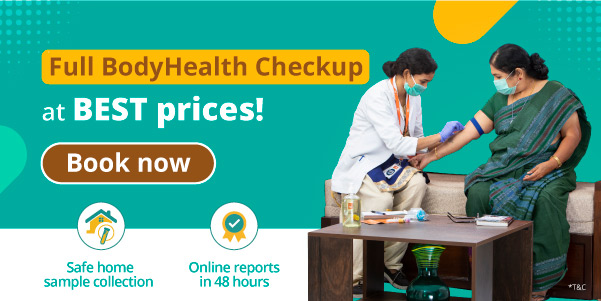
Disclaimer: The information provided here is for educational/awareness purposes only and is not intended to be a substitute for medical treatment by a healthcare professional and should not be relied upon to diagnose or treat any medical condition. The reader should consult a registered medical practitioner to determine the appropriateness of the information and before consuming any medication. PharmEasy does not provide any guarantee or warranty (express or implied) regarding the accuracy, adequacy, completeness, legality, reliability or usefulness of the information; and disclaims any liability arising thereof.
Links and product recommendations in the information provided here are advertisements of third-party products available on the website. PharmEasy does not make any representation on the accuracy or suitability of such products/services. Advertisements do not influence the editorial decisions or content. The information in this blog is subject to change without notice. The authors and administrators reserve the right to modify, add, or remove content without notification. It is your responsibility to review this disclaimer regularly for any changes.
As India has finally successfully developed its own vaccine to overcome the ongoing COVID-19 pandemic, everyone is wondering when they would get a shot of it, which most probably may restore the actual “normalcy” in their life.
Well, an expert panel with the government’s health ministry, the National Expert Group on Vaccine Administration (NEGVAC), has come up with a prioritisation list to identify the most vulnerable populations in an effort to reduce the mortality rate and burden on the healthcare system.
As every one of you was already guessing, healthcare workers (HCWs) are the first in line to get the vaccine. It means, doctors, nurses, every worker in the healthcare setup, will be the first to get the vaccines. As per the NEGVAC, there are about 1 crore HCWs across the country.
The second slot in the priority list is reserved for frontline workers (FLWs), who include state and central police department cops, home guard, armed forces and civil defence organizations, including municipal workers and disaster management volunteers. The overall population of FLWs in the country is about two crores.
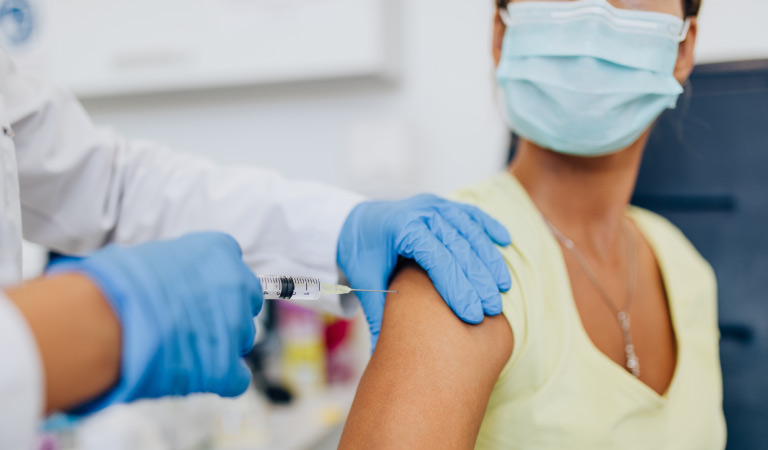
After covering these two groups, the expert panel has finalized a prioritized age group, which covers people above 50 years of age, and those below 50 years of age having associated comorbidities. As per the data collected by the expert panel, the population of such people is about 27 crore in India.
The age group of above 50 years has been subdivided into two parts – first of those above 60 years, and then of the people between 50 and 60 years. This bifurcation has been done for purposes of the phasing of roll out based on pandemic situation and vaccine availability.
Once the priority groups are covered, the remaining population will be vaccinated based on the disease epidemiology and vaccine availability.
The expert panel is referring to the latest electoral roll of Lok Sabha and Assembly elections to figure out the eligible candidates for the vaccinations. The age will be calculated as of January 1, 2021. So, those who were born on or before January 1, 1971, will fall under the category to be vaccinated as per the priority list.
Moreover, the government has already started collecting data on healthcare workers across the states, union territories, and central ministries. The collected data is being uploaded on CO-WIN software, a digital platform for real-time monitoring of COVID-19 vaccine delivery and it will be verified at multiple levels before beginning the vaccination process.
The beneficiaries are required to register on the CO-WIN software beforehand in order to avail the vaccine. The government hasn’t set any provision for on-the-spot registration for any candidate.
The central government of India has confirmed that they currently have 2.39 lakh vaccinators (Auxiliary Nurse Midwife-ANM), of whom only 1.54 lakh will be used to administer the COVID-19 vaccine shots. The aim of not using all of them is to minimize the effect on routine healthcare services across the country, including routine immunization.
The government has claimed that the current cold chain has the capacity of storing vaccines for the first three crore health workers across the country.
Over and above this, the government also confirmed that the plan and infrastructure are ready to kick start massive production of COVID-19 vaccines as soon as the scientists and researchers give a green signal.
Three major firms i.e. Serum Institute of India, Pfizer Inc and Bharat Biotech have applied for Emergency Use Approval in the last few days. The regulatory framework of the country has a specific provision for granting the emergency use authorization. Emergency use approval of the COVID-19 vaccines will be granted after sufficient evidence regarding their safety and effectiveness.
The NEGVAC has prepared a detailed and authentic plan for rolling out the COVID-19 vaccine, and the people, who do not fall in the selected categories for phase 1 rollout, should not panic. The panel surely has a plan in place for covering the remaining population of the country in the months to come.
Disclaimer: The information provided here is for educational/awareness purposes only and is not intended to be a substitute for medical treatment by a healthcare professional and should not be relied upon to diagnose or treat any medical condition. The reader should consult a registered medical practitioner to determine the appropriateness of the information and before consuming any medication. PharmEasy does not provide any guarantee or warranty (express or implied) regarding the accuracy, adequacy, completeness, legality, reliability or usefulness of the information; and disclaims any liability arising thereof.
Links and product recommendations in the information provided here are advertisements of third-party products available on the website. PharmEasy does not make any representation on the accuracy or suitability of such products/services. Advertisements do not influence the editorial decisions or content. The information in this blog is subject to change without notice. The authors and administrators reserve the right to modify, add, or remove content without notification. It is your responsibility to review this disclaimer regularly for any changes.
Moderna’s mRNA-1273 vaccine is co-developed by a biotechnology company – Moderna, Inc (Cambridge, Massachusetts.US) & the National Institute of Allergy and Infectious Diseases (NIAID).
It works by incorporating coronavirus’s genetic code into the human body. This leads to the generation of viral proteins, but not the whole virus, which is enough to train the immune system to attack. This would teach the body to make COVID-19 antibodies and develop another part of the immune system called T-cells to fight the coronavirus. This is one of the novel techniques of inserting RNA into human cells.
Moderna conducted a clinical trial involving 30,000 people in the US with half being given two doses of the coronavirus vaccine in a four-week gap & the rest had dummy injections. The analysis was based on the result of the first 95 volunteers to develop COVID-19 symptoms.
What was observed, was only five people tested positive for COVID-19 had been given the covid vaccine. The rest 90 were in those given the dummy treatment. The company thus concluded that the coronavirus vaccine 94.5% effective.
It also gave news of relief by confirming that there are no significant safety concerns. The basic side effects after administration of the covid 19 vaccine included short-lived fatigue, headache and pain.
Researchers are still studying the longevity of immunity for the volunteers who were administered the vaccine.
The preliminary data show very similar protection data which is around 90% for Pfizer/BioNTech vaccine and around 95% for Moderna vaccine. Since both the vaccines have the same mechanism of injecting part of the virus’s genetic code in order to provoke an immune response, we will have to wait for the final numbers in terms of safety & efficacy.
However, logistically Moderna’s coronavirus vaccine appears to be easier to store as it remains stable at minus 20’C for up to six months and can be kept in a standard fridge for up to a month. On the contrary, Pfizer’s covid-19 vaccine needs ultra-cold storage at around minus 75’C & it needs to be kept in the fridge for five days before administration. This gives an additional operational edge to Moderna over the Pfizer vaccine.
The Indian government is in negotiation terms with both domestic and international vaccine makers such as Moderna, Pfizer, Serum Institute, Bharat Biotech and Zydus Cadila for their Covid-19 vaccine.
Few Indian institutions such as Hyderabad-based Indian Immunologicals (IIL) are all geared up for a manufacturing collaboration with Moderna. The Indian government has also kept this possibility open with Moderna. They have also requested for direct purchase of the coronavirus vaccine and later internal distribution.
Global demand for covid 19 vaccines is expected to far exceed supplies despite significant efforts to increase the production ahead of time. Moderna has already signed a deal to supply 100 million doses to the U.S. and 80 million to the European Union. Other countries such as U.K & India are still in the negotiating phase.
This news from Moderna is very exciting & boosts optimism among people. This coronavirus vaccine news has definitely brought back hope in people across the world. But as responsible citizens, let’s aim to follow other precautionary measures till this vaccine finally comes to the market.
Pfizer has been working on a covid-19 vaccine, BNT162b2, with BioNTech, a German firm. It began phase 3 human trials on July 27 this year. The Pfizer vaccines use the mRNA technique to instruct the body to create antibodies against COVID-19. There are two advantages associated with the Pfizer vaccine.
1. The mRNA technology does not require the virus to be cultivated and replicated for the vaccine to be developed. Only the code is needed, and since this vaccine is synthetically developed, it can be produced quickly.
2. This Pfizer vaccine can be produced on large scales in huge containers called bioreactors.
The most recent Pfizer vaccine update is that the company has recently published preliminary data from its last human trial stage. The efficacy analysis shows that the Pfizer vaccine is 90% effective. That means the vaccine could prevent COVID infection in 90% of the cases among people who were given the vaccine as opposed to people who were given a placebo (a dummy vaccine). Another piece of good news is that the results have shown that there are no serious side effects or safety concerns.
Pfizer will soon be submitting its vaccine to the Food and Drug Administration (the drug regulatory body of the US) for approval. Once that is granted, Pfizer will apply for emergency authorization to bring the Pfizer vaccine to the market.
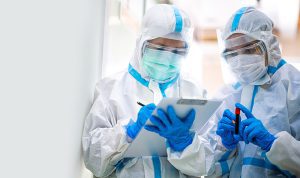
The Pfizer vaccine may or may not be approved by the FDA.
What goes in its favor is the 90% efficacy statistic because the FDA and other international drug regulatory organizations have stated that it has to be more than 50% effective for any vaccine to be approved. Pfizer’s vaccine meets this criterion. On top of that, the vaccine can be speedily produced in huge quantities.
The FDA might not grant emergency authorization immediately because the data published by Pfizer analyzed only 94 people among the 40,000 volunteers who were vaccinated during Pfizer’s trial. Officials at Pfizer have themselves stated that they don’t expect authorization on the back of so little data. That is why they will continue to collect data. And by the 3rd week of November, Pfizer will submit statistics for two months of analysis.
It’s too early to say whether India will get the Pfizer vaccine if it’s approved. By now, Pfizer has reached an agreement with the US, Japan, UK, and some countries of the EU to supply them with the vaccine. No formal deal has been reached between India and Pfizer.
For the Pfizer vaccine to be launched in India, Pfizer or BioNTech would have to approach India’s Central Drugs Standard Control Organisation. Trials will need to be conducted in India, and only then will the vaccine be available in Indian markets. But, India has two indigenous vaccines in the pipeline. Even if the Pfizer vaccine doesn’t get approval, we can always rely on our vaccine candidates to get a corona vaccine in India.
Until a vaccine is ready, let us all continue to observe the COVID protocol to keep our loved ones, our country’s people, and ourselves safe.
« Previous Page